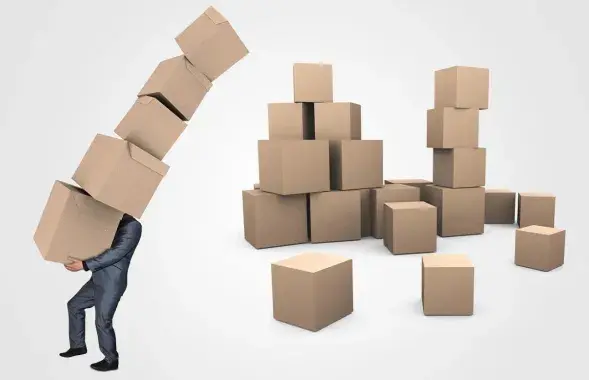Janusz Onyszkiewicz: “We do care about the developments in Belarus”
ERB: Could you please tell us about the purpose of your visit to Belarus?
I have come here because we in Poland are very worried about what is going on in Belarus; because we have a huge piece of common history; we are neighbors and we regards the Belarusians not only as neighbors but also as brothers. Therefore, we do care about the developments in Belarus. To us, Poles, the events in Belarus, your struggle for democracy resemble greatly our own struggle back in 1970s-1980s. Today’s rally reminded me about the demonstrations of Solidarnocs. But I have to note that the reaction of the Polish authorities was tougher than today in Belarus. This does not mean that I do not understand the peculiarity of the current situation. I know that the present authorities in Belarus can also respond in a tough and brutal way like the Polish government did in 1970s. But I have come not only for that. I also wanted to convey the views of the European Parliament, which criticized in sharp words the existing Belarusian authorities; which expressed solidarity with the Belarusians and hope that they could soon enjoy freedom and democracy. To all of us in Europe, it is totally inadmissible to have such a political anomaly like today’s Belarus in the center of Europe.
What could you see today in Minsk?
First of all, I saw a lot of people. If someone in Europe tells me that the resolution of the Belarusians in their struggle for freedom has declined and that the Belarusians are apathetic and passive, I will be able to say that it is not true. The Belarusians resemble the Poles very much. No wonder, because we have 1000 years of common history behind.
Are you going to make a report at the European Parliament about today’s events and about Belarus in general?
I am planning to prepare a report about today’s developments and present it at the sitting of the European Parliament’s Political Committee on Belarus and at the Foreign Affairs Committee. If this is not going to be possible, I will at least surely do it at the informal meeting of the group on cooperation with Belarus. Besides, I can also e-mail this information to all members of the European Parliament. In fact, I always do that. There is a section about Belarus on my personal web site at www.januszonyszkiewicz.pl, where I will also post this information.
Can you observe any signs of Belarus becoming closer to Europe?
The European Union has a number of proposals for Belarus. All of them are part of the neighborhood cooperation program. Significant financial resources have been allocated for this program. Regarding Belarus, there has been a huge change of the vision of Belarus in Europe over the past several years. Belarus has become known enough to Europe. Europe has noticed Belarus and showed care about it. Over the past several years, Belarus has become the country talked about the most in the European Parliament. Europe is open to cooperation and prepared to provide funding for different programs, but on condition that Belarus returns on the path of democratization. The implementation of those programs should take place in collaboration with the Belarusian authorities. Yet, the European Union is not going to support the Belarusian government the way it is today.
What role can Poland play in making Belarus closer to Europe?
I believe that Poland can further act as an advocate of Belarus in Europe. Regardless of what EU is going to do for Belarus, Poland can also assist your country, given the historical, geographical, cultural and language proximity of our nations. There is no language barrier, so the Belarusians repressed here could find it easier to study in Poland. It is much easier for the Belarusians to understand the texts in Polish than in Lithuanian. I am saying this without degrading the honor of Lithuania, our big friend. So, Poland has things to do. We understand Belarusians, their aspirations and remember our own struggle for democracy. Therefore, we can act as a voice of Belarus in the European Union and in the world.
What are the similarities between the developments in Belarus and the times of Solidarnocs in Poland?
There are some differences, because the whole democratic movement in Poland was united behind Solidarnosc, which existed legally for quite a long period of time. Over 10 million people joined Solidarnosc then. It could not be more, because Solidarnosc was a trade union and could invite workers only. That union gave the people the feeling of unity and strength. It helped people stop fearing. That’s why, even during the martial law, it was easier to us, despite repressions and numerous dramatic situations. Even at that time, several hundreds of underground newspapers with the circulation of hundreds of thousands were published. As far as I know, the independent distribution of information in Belarus is something that is yet to be built, because without independent information it will be hard to construct a democratic movement and struggle for freedom.
As a MEP from Poland, what is your stance towards the increased costs of Polish visas for Belarusians?
We in Poland find ourselves in a very complicated situation, because we want as soon as possible to join the Shcengen zone, i.e. the countries that have no borders between themselves. It means that we need to apply the common visa requirements in our relations with Belarus and Ukraine. The Polish visa will allow the people to travel across Europe up to Portugal and Scotland. Unfortunately, these visas have to be expensive enough – 65 euros. We are seeking support from the Polish government to relieve the Belarusians from visa payments, yet not relaxing our visa requirements at the same time. This is being done to show the openness of Europe versus the isolation of Belarus by Lukashenka. But the openness is not for all, because EU does not want to see those who violate human rights and infringe on the universal democratic principles. Those people will not be allowed to enter at any cost. All the rest should have an opportunity to enter Europe free of charge. But this is a long way, and we will continue fighting for that. I do not know if we will manage. While Poland is already prepared to do so, other members of the European Union remain cold to the idea. We will try to melt their hearts.
In your opinion, when can this happen?
It is a matter of several years. But I hope that it will coincide with our joining the Schengen zone, so that the Belarusians have no hard times financially to enter Poland. We would like to see as much Belarusians as possible in Poland.

















